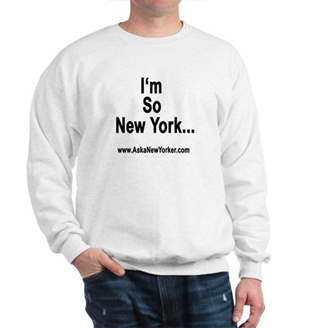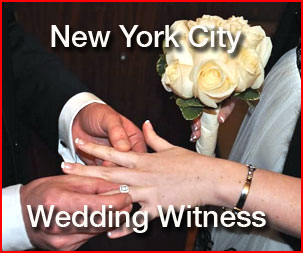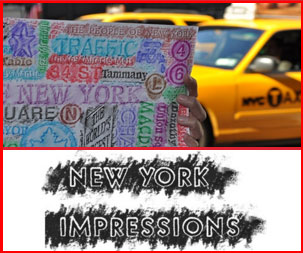Robert Galinsky is a New Yorker who is hard to label. He’s an actor and playwright but also an entrepreneur. He was a cofounder of Pseudo.com, which pioneered online streaming of original content almost two decades before Netflix, Amazon and others profited from doing so. He has embraced one of the more controversial forms of media and created a school of reality television, and also conducts theater workshops and performs in plays. He is a poet who has met Chelsea Clinton and appeared in a much-viewed TED talk giving an homage to coffee. His work is both a careful study and a bold celebration of the increasingly public nature of private life.
Ask A New Yorker asked Robert five questions:
What place or places in New York City are the most inspiring to you and why?
Astor Square is a perfect place. I like to stand and watch every kind of person in the universe walk by. You can see someone unsuspecting, like a Ray Donovan (from the show of the same name), and not know if she or he is a fixer, a lawyer, a pastor, or a gambler. Basically everyday people, with intricate pasts and potentially volatile futures, come at you from all directions at Astor Square. It’s an adrenaline rush and energizing for me. On any given day I can then turn around to see Alec Baldwin waltzing by with an espresso and in one hand and a copy of a Lou Reed’s “New York” album in the other. It’s New York City and a refresher!
Netflix, Amazon, Hulu, YouTube, and others are making money on what Pseudo did almost two decades ago. Do you feel wronged by circumstances or proud that you were decades ahead of your time?
I am thrilled about the circumstances! I feel that one of the main missions of Pseudo was to show our selves to the world, online from our homes, from our workstations, and from the streets, because connection is a reflection of need. We NEED to communicate and tell stories and Pseudo nurtured that and taught that any person with a voice should trust their voice and share it. Our other mission was to prove that individuals can generate income through those connections and without corporate bumper rails and constraints. Today, because of platforms like the groundbreaking YouNow and super creative Netflix, the next great writers, editors, casting producers, directors, and performers are being fed and seen. We are in the “golden age of streaming.” Pseudo came out in the “golden shower of streaming” and set the whole thing off!
What do you see as the next phase of media delivery? Where will we be 20 years from now?
Blink your eyes, change the channel, send a message, play your music, let there be light, and download like ‘I Dream of Jeannie’ or ‘Bewitched.’ Gestures are already controlling the on and off and the switches, buttons, and commands we have now are soon to be relics. We are ready for what’s happening now, aka what’s next, and it’s motion activated delivery with the person being… the personal device. We’ll upload and download into one another with a flex or glance.
Do you see the current trend of anchoring Broadway shows with big movie and TV starts as ultimately destructive to live theater?
The only thing destructive to live theater is bad theater. A movie/TV star has mass appeal and can open doors for others and develop new and larger theater audiences and that’s great. That needs to happen. It’s necessary (and not an evil necessity) because the “mass appeal” has been dumbed down by mainstream traditional media to such a great extent, that if someone from the domain of traditional media enters live theater, Broadway theater, I have no complaint about more eyeballs watching. Just depends on what we’re watching because talent will always be the deciding factor as to what takes off when it comes to enduring, enjoyable theater.
Many people see reality television as a negative phenomenon that has lowered the threshold to celebrity and sells prurient, manufactured controversy over meaningful content? How and why have you embraced is as a potential force for good?
I’ve embraced reality television for this main reason mostly. The man with the super schlong cigar, sitting at the oversized producers desk, behind locked and layered private doors of production with the old school gate-keeper mindset is no longer able to keep outsiders, idea people, identifiers, town criers, wallflowers, and artists from producing content that is more authentic and watchable than ‘the man’ can (or has). I think that’s ‘a potential force for good’ worth exploring.
Above: Galinsky from his Off-Broadway show “The Bench” (photo: Aidan Grant)











